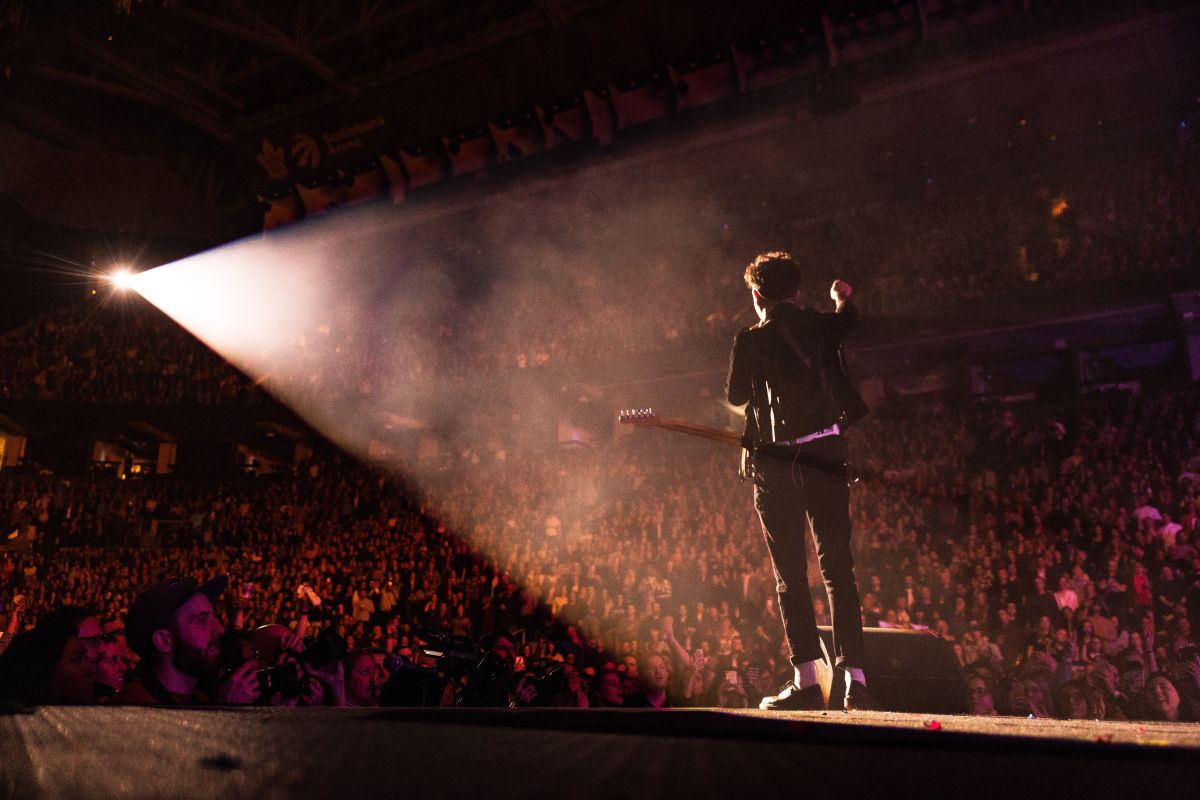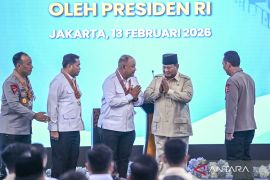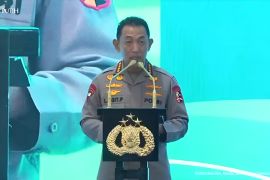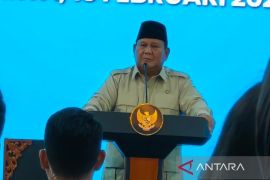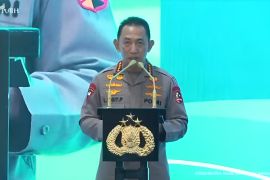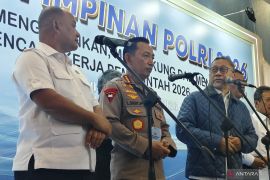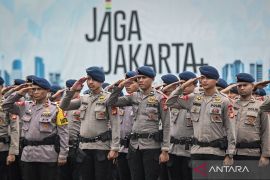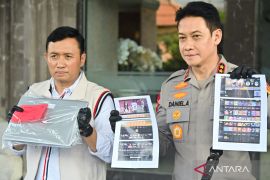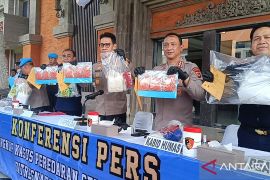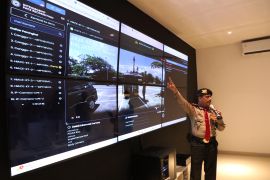Band members, Muhammad Syifa Al Lutfi and Novi Citra Indriyati, appeared in a video statement expressing remorse for any offense caused to the Indonesian National Police (Polri) and the public.
"Bayar Bayar Bayar," which translates to "Pay Pay Pay," recently went viral, featuring lyrics that critique alleged police corruption and abuse of power. However, the song uses the general term "police," not specifically referring to any particular country's police force.
The lyrics reference situations such as having to pay bribes to obtain a driver's license or to evade legal issues.
In their apology video, the artists clarified that the song was intended as a criticism of specific individual officers who had violated regulations, not as a generalization about the entire police force.
"I would like to apologize profusely to the Chief of Police and the Police institution for the song we created titled 'Bayar Bayar Bayar,' with the lyrics 'bayar polisi,' which we sang and caused to go viral on several social media platforms. I once uploaded it to Spotify, and I actually created it for police officers who violated the rules," Alectroguy, Sukatani's guitarist, stated in the upload.
Following the apology, Sukatani withdrew "Bayar Bayar Bayar" from all streaming platforms. They also requested that social media users delete any uploads of the song.
The apology and withdrawal of the song have sparked a debate about freedom of expression and artistic criticism in Indonesia. There are also concerns about potential pressure from authorities on the band to issue an apology.
Few people may know about the Sukatani band and their song, but after their apology video went viral, netizens and community groups voiced their support for the band through social media campaigns using the hashtag #kamibersamaSukatani, meaning #wearewithSukatani.
"Stay strong," Soleh Solihun, a radio announcer and public figure, wrote in a comment section of the apology video.
"Do not pull the song; keep going!!!" Stevi Item, a guitarist of the Deadsquad band, wrote.
Writer and sociologist Okky Madasari also expressed support.
"In this world, there is not a single person who, without coercion, voluntarily apologizes on video and withdraws their work. After a painting exhibition, a theater performance, and now a song! One hundred days of silence, a lifetime of resistance!" Madasari wrote.
Following Sukatani's apology, the National Police have asserted that law enforcement institutions are not opposed to criticism in response to the Sukatani band's apology.
"Commitment and consistency. The National Police continue to strive to become a modern organization, and we are not anti-criticism," Brigadier General Trunoyudo Wisnu Andiko, Head of the Public Information Bureau (Karopenmas) of the National Police Public Relations Division, stated when contacted by the media in Jakarta on Thursday.
He affirmed that the National Police Chief, General Pol. Listyo Sigit Prabowo, has consistently stressed the commitment to being receptive to criticism.
"The National Police Chief, General Police Listyo Sigit Prabowo, has indeed often emphasized this to all ranks," he remarked.
Meanwhile, Deputy Chairman of the Daily Executive Board of the National Awakening Party (PKB), Muhammad Aji Pratama, stated that criticism in art is natural.
"If there are those who disagree, they should refute with arguments, not simply delete it. Do not let the public see this as a form of silencing, as it will worsen public trust in freedom of expression in this country," Pratama noted in a statement in Jakarta, Thursday.
He asserted that musicians and artists play an important role in voicing public concerns and should not face intimidation or pressure in any form.
Hence, he said, if parties object to a work of art, the healthiest approach is dialogue rather than actions that restrict freedom of expression.
He encouraged all parties, including authorities and relevant stakeholders, to continue to protect the space for freedom of expression.
"We must ensure that artists do not live in fear when creating their work. If criticism starts being seen as a threat, it means that something is wrong with the way we run our country," he asserted.
He further affirmed that the PKB will continue to monitor the issue and ensure that freedom in the arts remains a part of Indonesian democracy.
"Art is a reflection of reality. If the mirror is broken, it does not mean the problem disappears. What we need to do is reflect better," he remarked.
Related news: Police accused of being most corrupt
Related news: Police chief shares anti-graft strategies at Cabinet retreat
Editor: Rahmad Nasution
Copyright © ANTARA 2025
